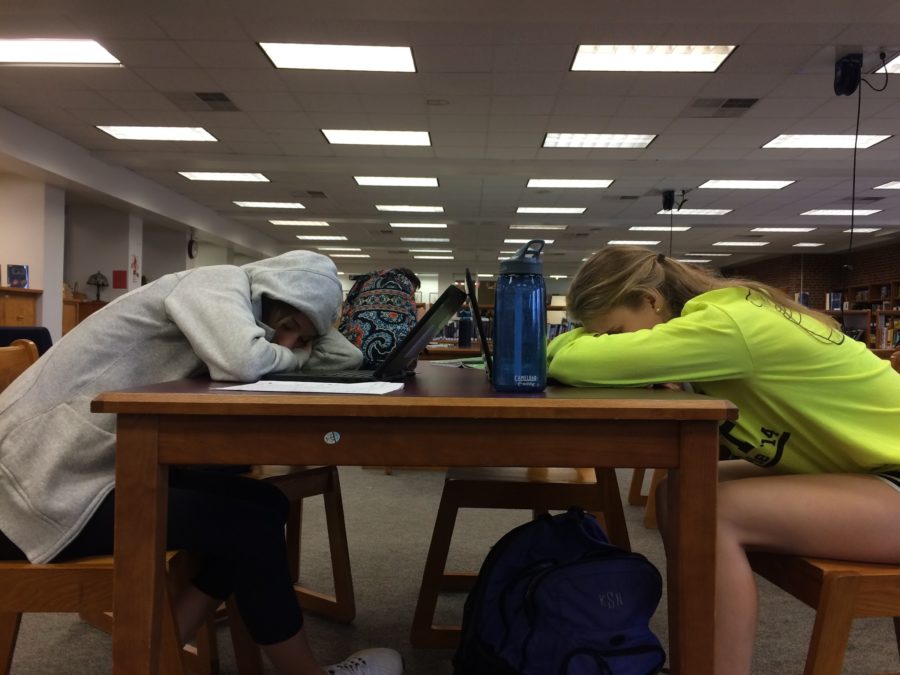Sleep deprivation creates major problems
February 27, 2017
The student next to you’s eyes keep drooping. His head drifts downward, then he suddenly flinches and pulls it back up. He sits up straight in his desk and forces himself to pay attention to the teacher. A look of confusion comes over his when he realizes that he missed some critical information during his nap.
Everyone has either seen this situation or been the student falling asleep. Doctors recommend that high school students get eight or nine hours of sleep a night, but most students fall short of that goal.
Students complain that school piles on too much for them to keep up which leaves them up at night to finish before class, but the most common factor that keeps students up late at night is technology. Cell phones are very accessible to high school students; they may play a distraction to them.
According to the National Sleep Foundation, about 72 percent of children ages six to 17 sleep with at least one electronic device in their bedroom. Students who have electronics with them in their bedrooms get one hour less sleep than the average.
Having your phone can distract you, such as checking email or finding a post you find interesting, or just watching a video you like. Also, Blue light from phone screens decreases the production of melatonin, a hormone that controls how long you stay asleep.
Keeping your bedroom free of distractions and turning off electronics 30 minutes before bedtime are recommendations from pediatrician Dr. Lori Balahan, who has worked for 22 years with many students who dealt with sleep deprivation.
Students who don’t get enough sleep often have issues with mental health, such as anxiety and depression, according to Balaban. These health issues can negatively affect the way a student functions in school and their outside life.
Balaban believes that students should have a very organized schedule that includes their sleeping schedule as well. Students want to have their free time to do what they want outside of school, but if students do not balance their work and non-work schedules, this may lead them to be up at night, either doing their work from school or staying late to play on their phone.
The situation that Balaban worries about the most is students who drive during the morning. Students that are tired in the morning have hard time concentrating; this may lead to accidents if students are not aware of their surroundings.
If you still find yourself tired during the day, exercise during to keep yourself awake, but it is not recommended to exercise at night because it will keep you excited from being asleep.
If you still find yourself drifting off to sleep during the day, a 20 minute early afternoon nap may be the answer. However, according to Balaban, more than 20 minutes or late afternoon naps can actually hurt your sleep.
While chugging a Red Bull or pounding some coffee might seem like a good idea to keep you awake, Balaban says that caffeine is really not a good strategy for teens. “It can interfere with sleep quality, especially if taken in the afternoon; is physiologically, addictive; and again, feeling a need for it indicates not enough sleep, which should be dealt with in a healthier manner,” Balaban said.
If you ever find yourself in a vulnerable state of stress, please do consider finding the best solution to increase your sleep hour. It can definitely help yourself out throughout the day without worrying about missing your lesson.

